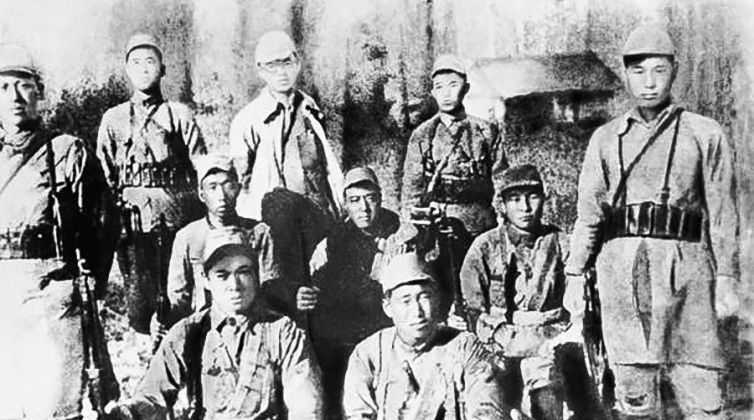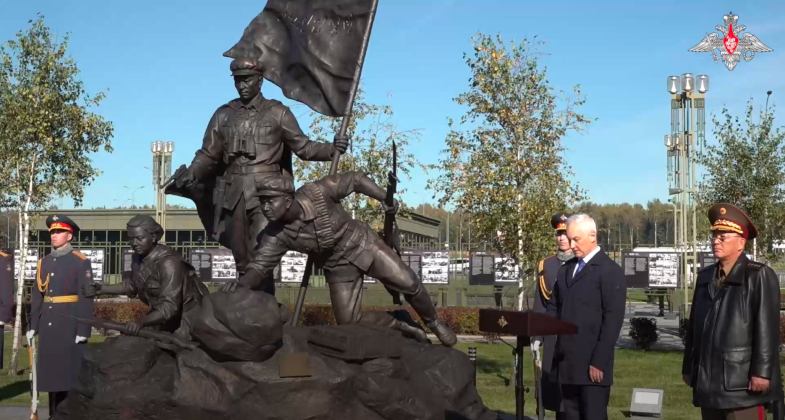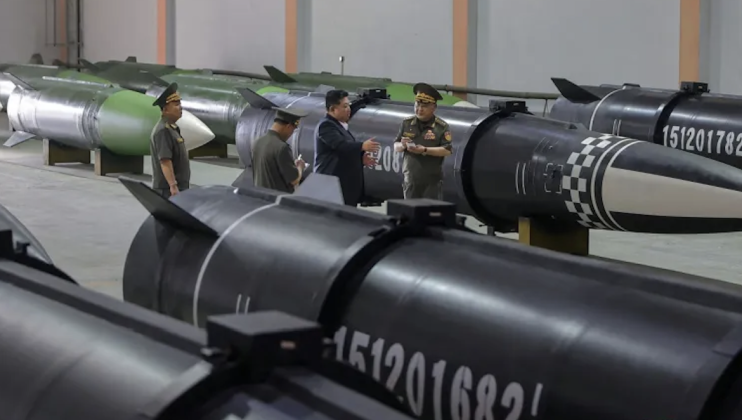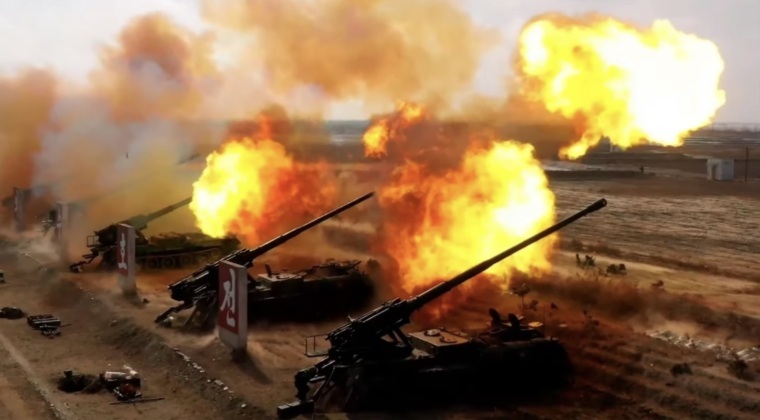News
Russia Further Honours North Korean Forces Amid Major Wartime Support
Russian Defence Minister Andrey Belousov and his North Korean counterpart General No Kwang Chol have jointly unveiled a sculpture commemorating the war effort of Korean guerrillas during the Second World War, during which they played a significant role in joint operations against Imperial Japan. The sculpture composition ‘Allies. Fighters of Korea’ was unveiled near the Main Cathedral of the Armed Forces of the Russian Federation, and was dedicated to the 80th anniversary of the end of the war in the Pacific theatre. Belousov expressed confidence that the monument would serve as “a tribute to the generation of victors, stressing its importance to preserving historical truth.” The Russian defence minister further stressed that the monument symbolised “an unbreakable brotherhood of the two peoples,” stressing that the participation of North Korean servicemen in repelling a Ukrainian and Western assault on the Russian Kursk region represented a confirmation of the comprehensive strategic alliance between Moscow and Pyongyang.

Russian officials have been particularly outspoken in expressing gratitude for the Korean People’s Army’s intervention to support the country’s ongoing war effort, with Foreign Minister Sergey Lavrov in July, stating: “the heroic soldiers of the the Korean People’s Army together with the Russian servicemen brought closer the liberation of Kursk Region with the cost of their blood and even their lives.”He added that monument to the Korean People’s Army personnel who fought in Kursk would be erected in Russia, under an initiative that was “fully backed by our North Korean friends.” Regarding the origins of the initiative to send Korean People’s Army units to Kursk, Lavrov revealed that this was first proposed by the Chairman of the Korean Workers’ Party Kim Jong Un. “We had no reason to refuse this sincere manifestation of solidarity, and we proceed from the fact that North Korea itself determines the forms in which it implements our agreement on strategic partnership,” he said.

Speaking at the unveiling of the new statue, North Korean Defence Minister No Kwang Chol pledged: “We will fully support the struggle of the Russian government, army and people, who, under the leadership of the country’s President, Comrade Putin, are firmly defending the right to sovereignty, territorial integrity and the interests of the country.” Alongside personnel contributions, the North Korean defence sector has also played an increasingly central role in helping to sustain Russia’s ongoing war effort. By the second quarter of 2025, nearly half of artillery rounds used by the Russian Army were of North Korean origin, with many Russian artillery units having come to rely almost entirely on ammunition supplied by the country. By then, at least six Russian Army artillery units sourced between 50 and 100 percent of their munitions from North Korea.

Korean People’s Army 170mm self-propelled artillery has increasingly been deployed on the frontlines well beyond the Kursk region, with its capabilities having been singled out by Ukrainian officials for the serious complications caused by their combination of long range and high precision. Neither Russia’s defence sector, nor the Western defence sectors supplying Ukraine, produce comparably long ranged howitzers. Further increases in North Korean support are expected, with theunveilingof a new factory producing short ranged tactical ballistic missiles on a large scale in early September is expected to facilitate a further increase in the rates of exports to Russia, with the East Asia state producing a much wider range of such missiles. Reports from South Korean sources in August indicated thattank exports to Russia, including the new Chonma 2 main battle tank, were also expected, as the Russian Army grapples with the possibility of shortages.

North Korea has provided support both for the Russian defence sector and for reconstruction efforts, with the Alabuga Factory which produces Geran-2 drones reportedly benefitting from the dispatch of 25,000 North Korean industrial workers. In June 2025 Russian Security Council Secretary Sergei Shoigu confirmed that the Korean People’s Army would dispatch 1000 mine clearance experts and 5000 military engineers to support de-mining and reconstruction efforts in the Kursk region. In early September Chairman Kim Jong Un pledged that his country would provide further support to Moscow as needed. “As I mentioned during our previous meeting, if there is any way we can help Russia, we will certainly do so and consider it our fraternal duty,” he stated at the time. President Putin stated that relations between the two countries had taken on a “special, trusting, and friendly character.”“I would like to point out that your soldiers fought courageously and heroically… we will never forget the sacrifices made by your armed forces and the families of your servicemen,” he stated, thanking Chairman Kim on behalf of the Russian nation.












